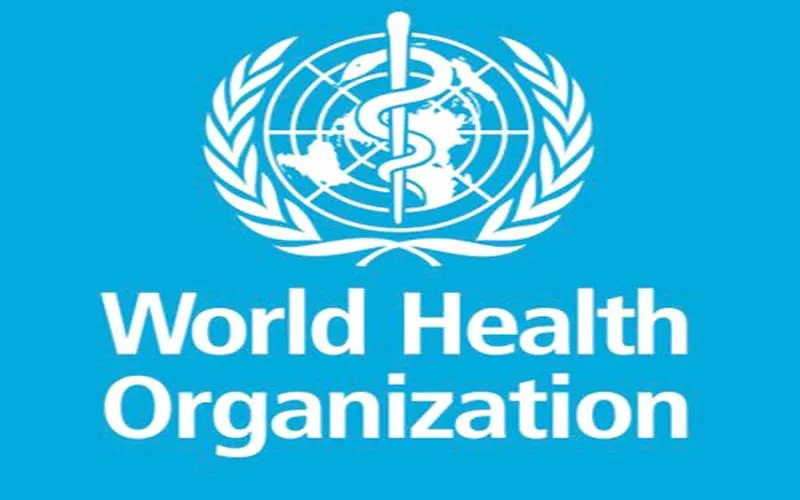United Nations/Geneva: The new COVID-19 variant B.1.1.529, first detected from South Africa this week, was on Friday designated as a “Variant of Concern” by the World Health Organisation, which named it “Omicron”.
A “variant of concern” is the WHO’s top category of worrying Covid variants.
The WHO said the Technical Advisory Group on SARS-CoV-2 Virus Evolution (TAG-VE), an independent group of experts that periodically monitors and evaluates the evolution of SARS-CoV-2 and assesses if specific mutations and combinations of mutations alter the behaviour of the virus, convened on Friday to assess the B.1.1.529 variant, first reported to the world health body from South Africa on November 24.
“The new #COVID19 virus variant – Omicron – has a large number of mutations, some of which are concerning. This is why we need to speed up our efforts to deliver on #VaccinEquity ASAP and protect the most vulnerable everywhere,” WHO Director-General Tedros Adhanom Ghebreyesus Tweeted.
Based on the evidence presented indicative of a detrimental change in COVID-19 epidemiology, the TAG-VE has advised WHO that this “variant should be designated as a Variant of Concern, and the WHO has designated B.1.1.529 as a VOC, named Omicron” under its Greek-letter system.
“This variant has a large number of mutations, some of which are concerning. Preliminary evidence suggests an increased risk of reinfection with this variant, as compared to other VOCs. The number of cases of this variant appears to be increasing in almost all provinces in South Africa,” the WHO said in a press release.
The variant, first reported to WHO from South Africa on Wednesday, has also been identified in Botswana, Belgium, Hong Kong and Israel.
The WHO has countries to enhance surveillance and sequencing efforts to better understand circulating SARS-CoV-2 variants, submit complete genome sequences and associated metadata to a publicly available database.
Countries are also advised that where capacity exists and in coordination with the international community, they should perform field investigations and laboratory assessments to improve understanding of the potential impacts of the VOC on COVID-19 epidemiology, severity, effectiveness of public health and social measures, diagnostic methods, immune responses, antibody neutralisation, or other relevant characteristics.
“The epidemiological situation in South Africa has been characterised by three distinct peaks in reported cases, the latest of which was predominantly the Delta variant. In recent weeks, infections have increased steeply, coinciding with the detection of B.1.1.529 variant,” WHO said, adding that the first known confirmed B.1.1.529 infection was from a specimen collected on November 9.
WHO said current SARS-CoV-2 PCR diagnostics continue to detect this variant. Several labs have indicated that for one widely used PCR test, one of the three target genes is not detected (called S gene dropout or S gene target failure) and this test can therefore be used as marker for this variant, pending sequencing confirmation.
“Using this approach, this variant has been detected at faster rates than previous surges in infection, suggesting that this variant may have a growth advantage,” the global health organisation said.
WHO added that there are a number of studies underway and the TAG-VE will continue to evaluate this variant. WHO will communicate new findings with the member states and to the public as needed.
Meanwhile, the discovery of a new coronavirus variant sent a chill through much of the world as nations raced to halt air travel, markets fell sharply and scientists held emergency meetings to weigh the exact risks, which were largely unknown.
In response, the United States and Canada joined the European Union and several other countries in instituting travel restrictions on visitors from southern Africa, where the variant brought on a fresh surge of infections and is thought to have originated.
The White House said the US will restrict travel from South Africa and seven other countries in the region beginning Monday. It did not give immediate details except to say the restrictions will not apply to returning US citizens or permanent residents, who will continue to be required to test negative before their travel.
Medical experts, including the WHO, warned against any overreaction before the variant was better understood. But a jittery world feared the worst nearly two years after COVID-19 emerged and triggered a pandemic that has killed more than 5 million people around the globe.
“We must move quickly and at the earliest possible moment,” British Health Secretary Sajid Javid told lawmakers.
Omicron has now been seen in travellers to Belgium, Hong Kong and Israel as well as in southern Africa.
There was no immediate indication whether the variant causes more severe disease. As with other variants, some infected people display no symptoms, South African experts said. The WHO panel drew from the Greek alphabet in naming the variant omicron, as it has done with earlier, major variants of the virus.
Even though some of the genetic changes appear worrisome, it was unclear how much of a public health threat it posed. Some previous variants, like the beta variant, initially concerned scientists but did not spread very far.
The 27-nation European Union suspended air travel from southern Africa, and stocks tumbled in Asia, Europe and the United States.
President Joe Biden said the new variant “should make clearer than ever why this pandemic will not end until we have global vaccinations.” He called anew for unvaccinated Americans to get their widely available doses and for governments to waive intellectual property protections for COVID-19 vaccines so they can be more rapidly manufactured around the world.
The 27-nation European Union suspended air travel from southern Africa, and stocks tumbled in Asia, Europe and the United States. The Dow Jones Industrial Average dropped more than 1,000 points before an afternoon uptick. The S&P 500 index was down 2.3 per cent, on pace for its worst day since February. The price of oil plunged nearly 12 per cent.
( With inputs from AP)






